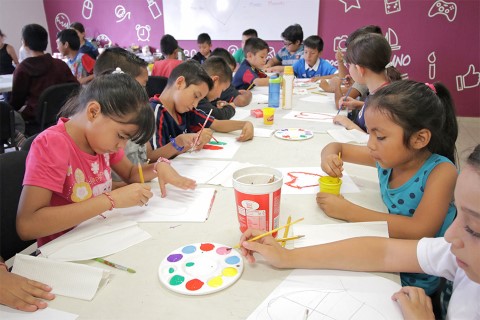- Thought Leadership

Health education is one of the major pillars of our program. Based on the knowledge that prevention is the most powerful medicine, our supporters help ensure staff, children and caregivers are provided with the tools they need to stay healthy.
The long-term results of growing up in poverty can have lasting negative consequences on a child’s physical and mental well-being. However, when we reach children early, teaching them how to build resilience, they are better able to navigate the difficulties they’re up against and are better equipped to break free from poverty.
In 2017, our staff tested a resilience curriculum created in partnership with Turning Point. The pilot launched in Mexico, where mental health is widely recognized as a priority health issue. We expanded the reach of the program there the following year and also rolled it out to more than 2,000 children in India. That year, we increased the number of children receiving mental health interventions (prevention or treatment) by 122%.


*2019 stat
When learning resilience, participants — like those seen here in Mexico last year — create art, using different colors to identify a range of emotions.
Today, faced with the challenges of a global pandemic, children and families around the world are struggling with mental well-being more than ever. In response, our supporters helped us quickly test a modified version of our resilience programming for entire families – one that can be taught and used remotely. Because we had a solid foundation to build upon, we were able to launch this virtual resilience curriculum globally by the end of June 2020.
Modifying our existing resilience program for use on available video platforms, participating families are given “to-do challenges,” designed to help everyone in the household build and strengthen their resilience skills. Virtual group discussions, phone calls and WhatsApp “rooms” are created for participants and instructors to share photos, videos and thoughts about these exercises.
Such adaptive interventions, especially during this incredibly trying time, are powerful demonstrations of the vital work our staff is able to do, thanks to the ongoing dedication of our supporters.
Comments
You must be logged in to comment. If you have an account, click here to log in.